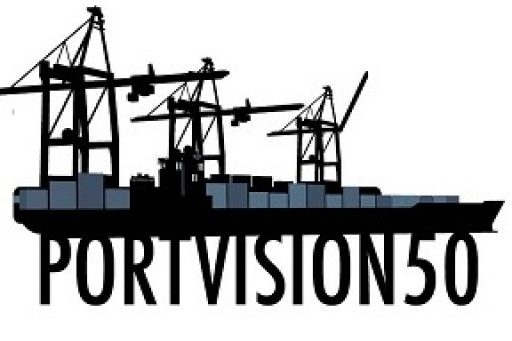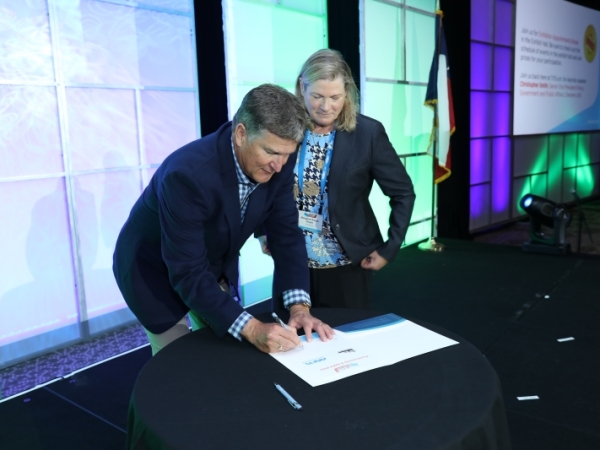The industry needs to be prepared for the coming changes in regulation. Click the links to find in-depth analysis, explanation, and information.
MEPC 80
Recently PV50 virtually attended the 80th Session of the IMO Marine and Environment Protection Committee (MEPC 80) The hybrid Meetings were held in London at the IMO headquarters. In a nutshell here is what they agreed upon regarding a revised GHG Emissions Reductions Strategy. The 2023 IMO GHG Strategy identifies levels of ambition for…
Renewable Fuel Standard (RFS)
The U.S. Environmental Protection Agency’s (EPA) Renewable Fuel Standard (RFS) mandates the incorporation of renewable fuels into transportation fuels. Each year, the EPA outlines the volume requirements for each renewable fuel category and sets those volumes through the annual renewable volume obligation (RVO). The final RFS volumes were announced in July of 2023. Obligated parties…
MEPC 78 – GHG Reductions
Last week delegates to the 78th Session of the IMO’s Marine Environment Protection Committee (MEPC78) participated in a “hybrid format” with some attending in-person in London while most of the delegate attended virtually. Out of the 104 documents submitted ahead of the meeting, forty-three focused on Agenda item 7, formally titled, “Reduction of Greenhouse Gas…
MEPC 78 Featured in Washington Post
This week the IMO Maritime Environmental Protection Committee (MEPC) will hold it’s 78th Session MEPC78. PortVision50 will be attending virtually. While all eyes of the maritime world have been on these meetings and the Intersessional Working Groups that led up to this week’s meeting, MEPC 78 was featured in today’s Washington Post. To read the…
PV50 A Green Marine Ambassador
PV50 has joined Green Marine as an Ambassador. Entities like PV50 serve as ambassadors of the Green Marine environmental certification program. As an ambassador, our organization will promote the efforts and successes of Green Marine participants to numerous industry partners, and governmental stakeholders. More information about Green Marine can be found here
PortVision50 Highlighted in RMM Podcast
PortVision50’s President Margaret Kaigh Doyle was interviewed for the Riviera Maritime Media (RMM). John Snyder, RMM’s Managing Editor conducted the interview. The podcast covered several topics including PortVision50, our mission, the vital role ports will play in maritime decarbonization, and how infrastructure changes will be vital to the success of reducing greenhouse gas emissions. Additionally,…
MEPC 77 Update
The oracles have weighed in on the 77th Session of IMO’s Marine Environment Protection Committee (MEPC77) meeting held last week. The virtual format continues to hamper the progress on so many of the GHG reductions efforts which appear to be frustratingly unachievable in the short term. Despite calls by the delegates to the COP26 Climate…
Infrastructure Bill Passes
Source: AAPA Release 11/6/21 U.S. House of Representatives passed a $1.2 trillion bipartisan infrastructure bill, the Infrastructure Investment and Jobs Act, which includes over $5 billion exclusively for port programs and an additional $27 billion that ports would be eligible to apply for. President Biden is expected to sign the bill into law quickly. Funding…
Hydrogen Shot Summit
The Department of Energy (DOE) Hydrogen Shot Summit was held virtually from August 31 – September 1, 2021 and introduced the DOE’s ‘1-1-1’ goal, which is to lower the cost of green hydrogen to $1 per kilogram within 1 decade. In 2021, hydrogen production costs vary from $1/kg for grey hydrogen, to $3-$5/kg for green…
PortVision50 Participates in Society of Naval Architects and Marine Engineers (SNAME) Fall Convention
On October 28, 2021, PV50’s President, Margaret Kaigh Doyle and founding Director Jan Flores participated in an alternative fuels at the 2021 SNAME Fall Convention held in Providence, RI. Doyle focused on methanol as a marine fuel while Flores’ presentation discussed the use of ammonia as a future fuel. Please click the images below to…
PortVision50 Signs Partnership with AAPA
PortVision50 and American Association of Port Authorities (AAPA) announced a partnership at the AAPA Annual Conference on October 7, 2021. PortVision50 will work to ensure that port infrastructure projects align with global projects supporting IMO GHG reduction targets for 2030 and 2050 in collaboration with AAPA. “PortVision50 (PV50) is dedicated to empowering the maritime industry…
A Brief MEPC76 Brief
Many of the soothsayers have weighed in on the 76th Session IMO’s Marine Environment Protection Committee (MEPC76) meeting last month and the reviews are mixed. You can read the official IMO release on MEPC76 here. The virtual format made the process difficult but here is what they did hammer out: As of July 1, 2024,…
Shipping Coordinating Committee held ahead of MEPC 76
On June 3, 2021 The Department of State conducted an open meeting of the Shipping Coordinating Committee via teleconference The agenda items to be considered at the Committee mirror those to be considered at 76th Session of IMO’s Marine Environment Protection Committee (MEPC 76) and include: the IMO’s continued work on reduction of greenhouse gas emissions…
8th Intersessional Working Group on Greenhouse Gases (ISWG-GHG)
IMO has announced that the 8 th Intersessional Working Group on Greenhouse Gases (ISWG-GHG) held virtually 24-28 May 2021. The Working Group will be sending a comprehensive set of guidelines for debate at the virtual meeting of the 76th Marine Environment Protection Committee (MEPC76) on 10-17 June. More details on the approved measure can be…
Virtual 2021 Shipping Coordinating Committee Meeting to be held June 3, 2021
The US Department of State is holding a public meeting of the Shipping Coordinating Committee on June 3 via teleconference starting at 10 10:00 AM ESDT. The primary purpose of the meeting is to prepare for the 76th Session of IMO’s Marine Environment Protection Committee (MEPC 76). This meeting is usually held at USCG Headquarters. …
Technologies under Consideration for IMO GHG Reductions
Based on the IMO GHG reduction, by 2030 carbon dioxide emissions should be reduced by at least 40% from 2008 levels, and should be reduced by 50% by 2050, as measured by emissions per transport work or the amount of carbon produced per ship, according to the mandate. Although no decision has yet been made…
IMO MBM Submission MEPC76-7-39
In April 2021, eight of the world’s key shipping organizations, including the Baltic and International Maritime Council, International Association of Dry Cargo Shipowners, Cruise Lines International Association, International Chamber of Shipping and World Shipping Council, called on the International Maritime Organization (IMO) Member States to immediately do what it takes to scrutinize the role of market-based measures (MBMs) in helping the…
2021 IMO GHG Meetings
9-10 February 2021 – Symposium on alternative low carbon and zero carbon fuels Click here to review the agenda or watch the session. 14-15 April 2021 – Informal discussion session on Lifecycle GHG/Carbon Intensity Guidelines for Marine Fuels 24-28 May 2021 – Eighth Meeting of the Intersessional Working Group on Reduction of GHG Emissions from…
IMO Ship-Port Interface Guide
IMO recently announced the release of the Ship-Port Interface Guide; Practical Measures to Reduce GHG Emissions. This document was developed by the IMO’s Global Industry Alliance to Support Low Carbon Shipping and the Norway GreenVoyage2050 Project. It is the hope that this guide will be a resource to port stakeholders including port authorities, terminals, and nautical service…
U.S. Department of Transportation Announces Funding Availability for Port Infrastructure Development Program
Monday, March 29, 2021 U.S. Department of Transportation Announces Funding Availability for Port Infrastructure Development Program Funding Will Provide $230 Million to Strengthen and Modernize Ports WASHINGTON – The U.S. Department of Transportation’s Maritime Administration announced a Notice of Funding Opportunity (NOFO) encouraging states and port authorities to apply for $230 million in discretionary grant…
The IMO 2030 GHG Targets – Coming to a Port near you as soon as 2023
After a transition to IMO 2020, shipowners are now facing their next big challenge — the 2030 target to reduce greenhouse gas emissions. As mandated by the International Maritime Organization (IMO), by 2030, carbon dioxide emissions should be reduced by at least 40% from 2008 levels, and should be reduced by 50% by 2050, as…
Understanding the Ship Energy Efficiency Management Plan (SEEMP) and Energy Efficiency Operational Indicator (EEOI)
The Ship Energy Efficiency Management Plan (SEEMP) is an operational measure that establishes a mechanism to improve the energy efficiency of a ship in a cost-effective manner. The SEEMP also provides an approach for shipping companies to manage ship and fleet efficiency performance over time using metrics such as the Energy Efficiency Operational Indicator (EEOI)…
What is the Energy Efficiency Design Index (EEDI)?
The EEDI for new ships is the most important technical measure and aims to promote the use of more energy efficient (less polluting) equipment and engines. The EEDI requires a minimum energy efficiency level per capacity mile depending on ship type and size segments. Since 1 January 2013, following an initial two-year phase zero, new ship designs have needed…


